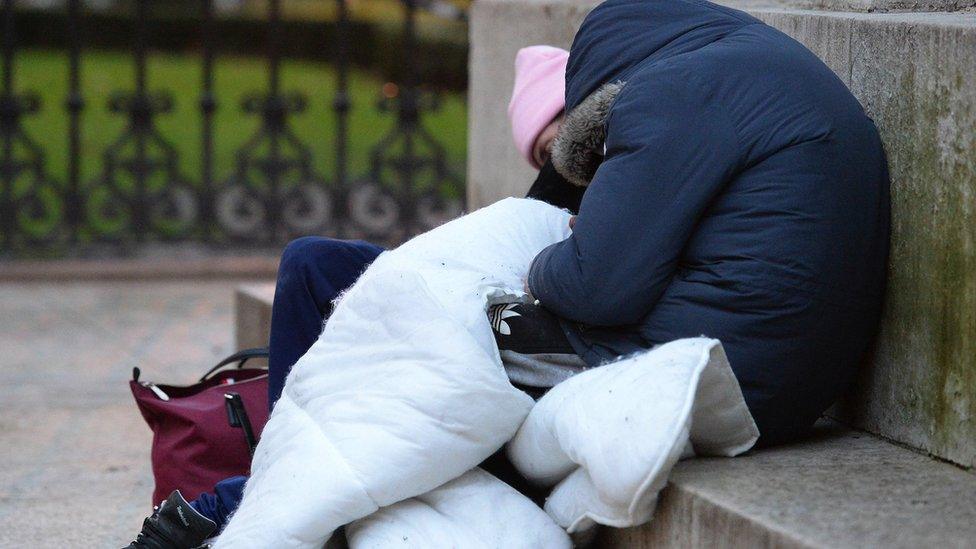Centre Point: When protesters stormed the UK's tallest empty building
- Published
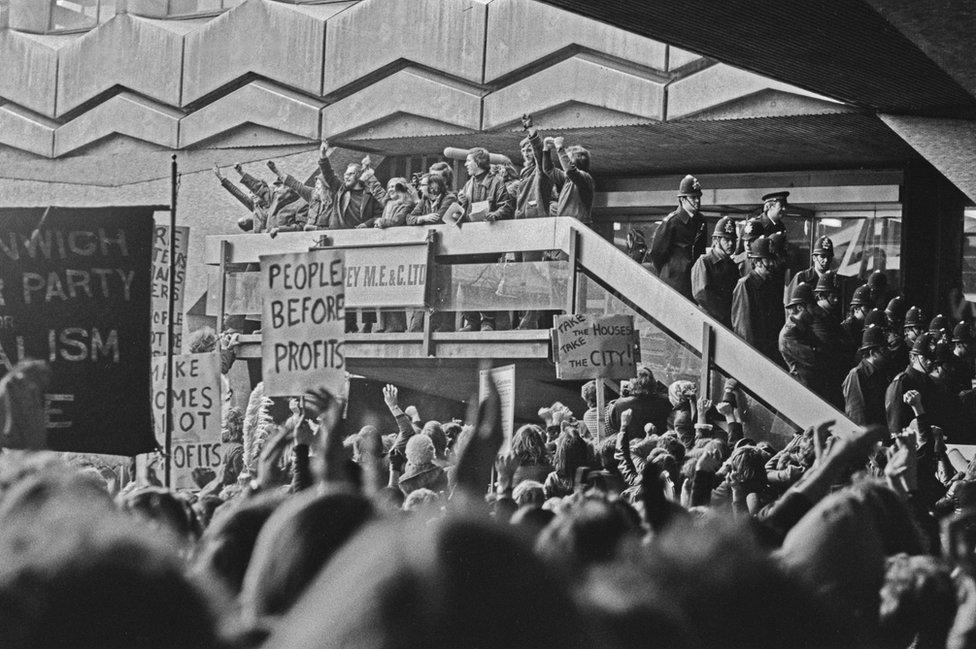
The Centre Point building became a focal point for housing protests
Fifty years ago, a group of people stormed an empty office block in central London to protest about a lack of housing in the capital.
Britain was still in the grip of the three-day working week due to strikes by coal miners when Centre Point was targeted on 18 January 1974.
Protesters wanted to send a message about their anger at empty buildings, by occupying the tallest and largest empty building in the country.
Beforehand, The Times described two demonstrators "posing as Post Office engineers with facsimile security passes [being] allowed into the £45m building", and then "blocking the switchboard".
Soon after that Friday afternoon, about 100 people had occupied the 32-storey building in St Giles Circus and, by Sunday, rallygoers had it surrounded.
Chants of "squatters in, coppers out" could be heard, in reference to the heavy police presence. Many demonstrators carried banners, one of which said: "London belongs to the people".
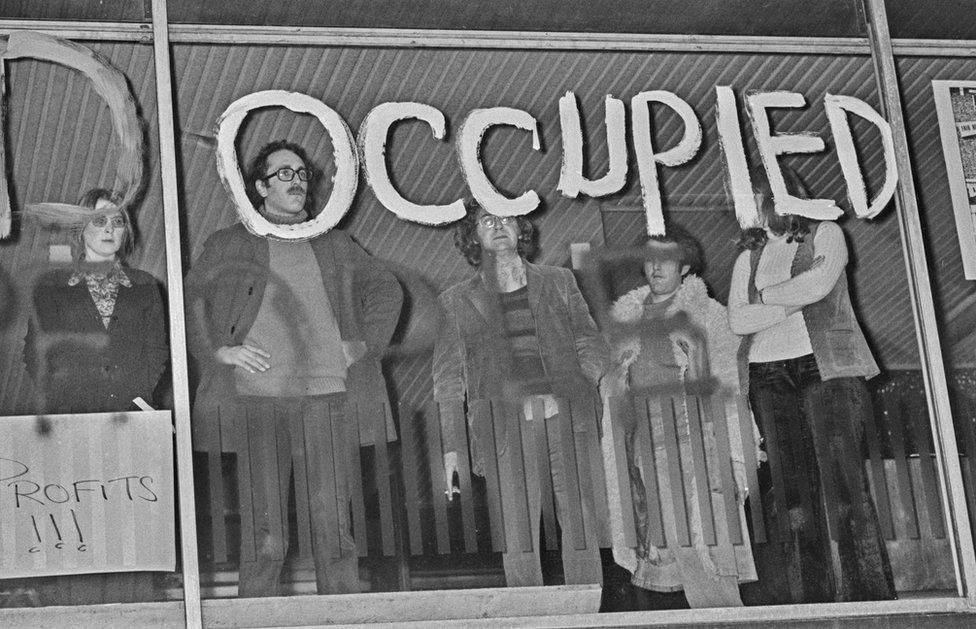
The protest lasted a whole weekend
Centre Point had largely remained unoccupied since being built in 1964. Camden Council had tried, unsuccessfully, to bring the building back into public ownership through compulsory purchase orders.
One protester told the BBC: "It's to draw much more attention to the plight of the homelessness [sic] and the ridiculousness of this building being empty for so long when so many people are without houses in London."
The BBC also reported two thirds of the demonstrators inside the building were made up of men including "doctors, lawyers, students and social workers, as well as homeless Londoners".
Among them was Ron Bailey, now 80, who organised the protest and described the atmosphere as "euphoric".
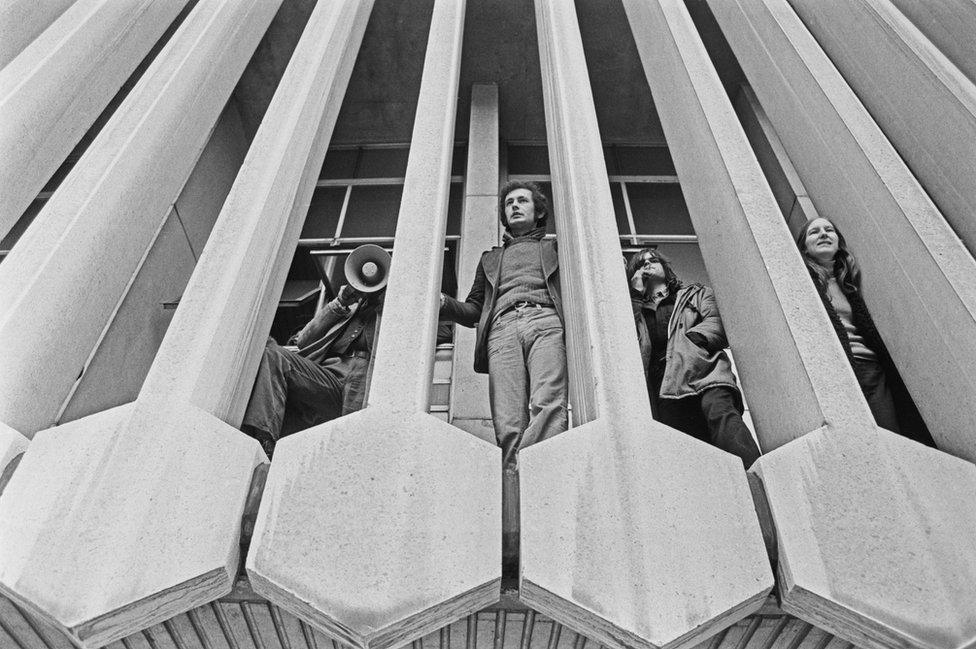
The protesters wanted empty properties to house families
He said: "I remember spending four months meticulously planning a peaceful and non-violent demonstration.
"We were trying to highlight the issue of empty property and it was so obviously a grotesque indication of property and land speculation.
"I remember standing on the parapet with my loud haler saying 'honk if you agree'," adds Mr Bailey.
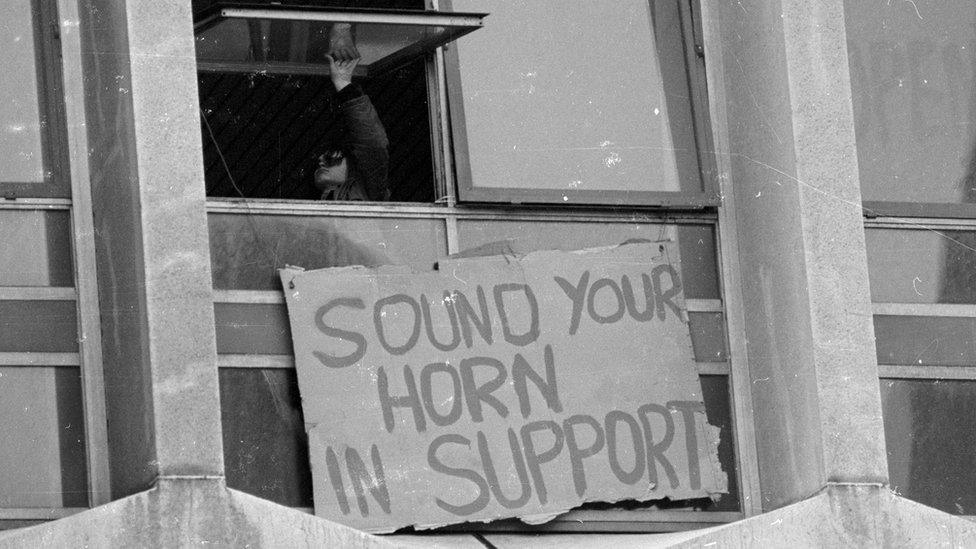
The protesters were given permission by the building's owner to stay for the weekend
"All the cars were tooting, that was really exciting. We caught the public the mood because people knew about the housing crisis and it was imaginative, not reckless or violent. It was fantastic."
Harry Hyams, the owner of the building, gave permission for the protesters to remain for the weekend and many of the 70 police officers left. Three security guards and two workmen were allowed out.
"It seems a long while ago," says Mary Evans Young, 77, who entered Centre Point after waiting at a nearby Wimpy burger restaurant.
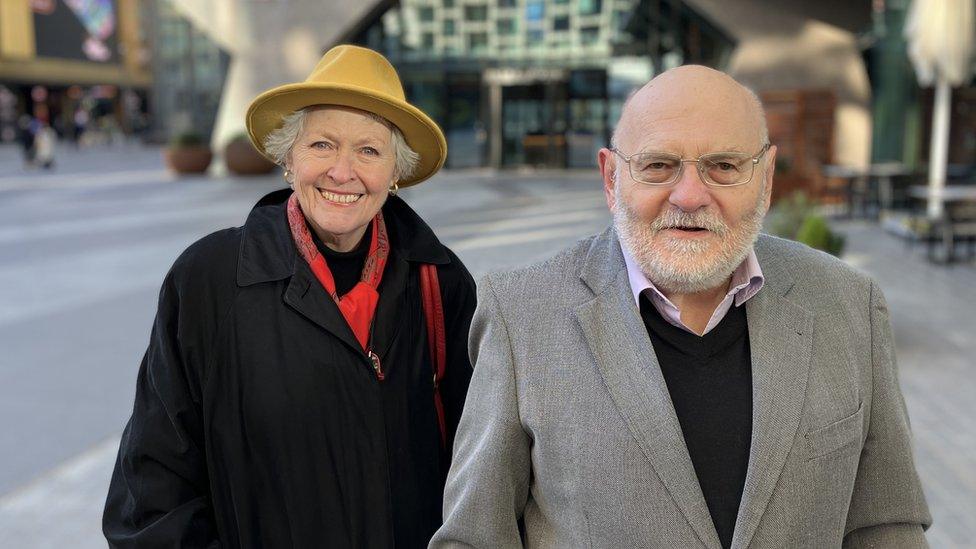
Mary and Ron reunited on the 50th anniversary of the protest
"It was a laughing stock. It was a big phallic symbol mocking homeless families when they were in desperate need." Little has changed, she says.
London has more empty homes than at any time since 2010, figures from last year show.
"The trouble is, it's no better now, it's just as bad or worse," said Ms Evans Young, adding that temporary accommodation was "a terrible waste of money and terrible quality of life".
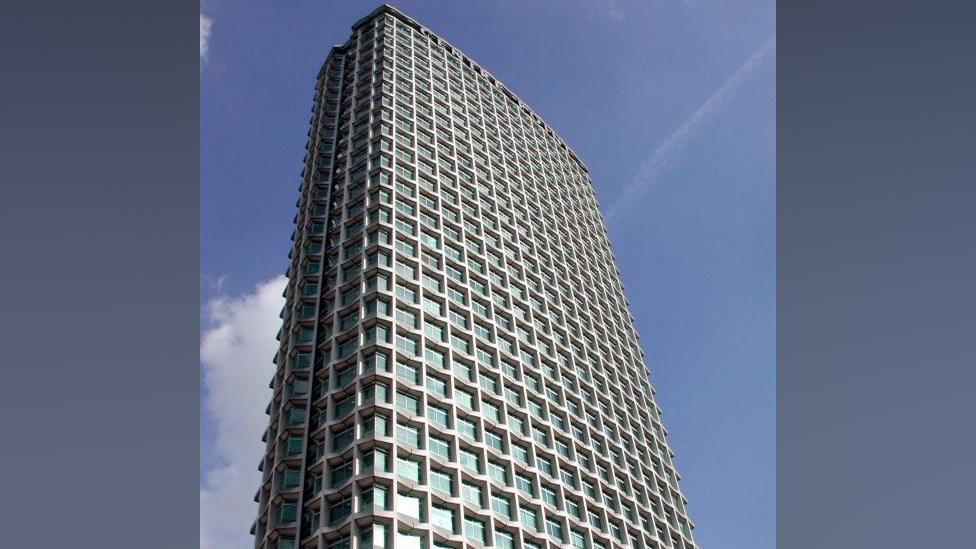
Centre Point, pictured in more recent times
When the London empty homes figures came out last April, a spokesperson for London mayor Sadiq Khan said the problem of empty homes was "a national issue which demands a national response from the government".
A spokesman at the Department for Levelling Up, Housing and Communities said councils had the powers needed to address the issue.

Listen to the best of BBC Radio London on Sounds and follow BBC London on Facebook, external, X, external and Instagram, external. Send your story ideas to hellobbclondon@bbc.co.uk, external
- Published23 October 2023
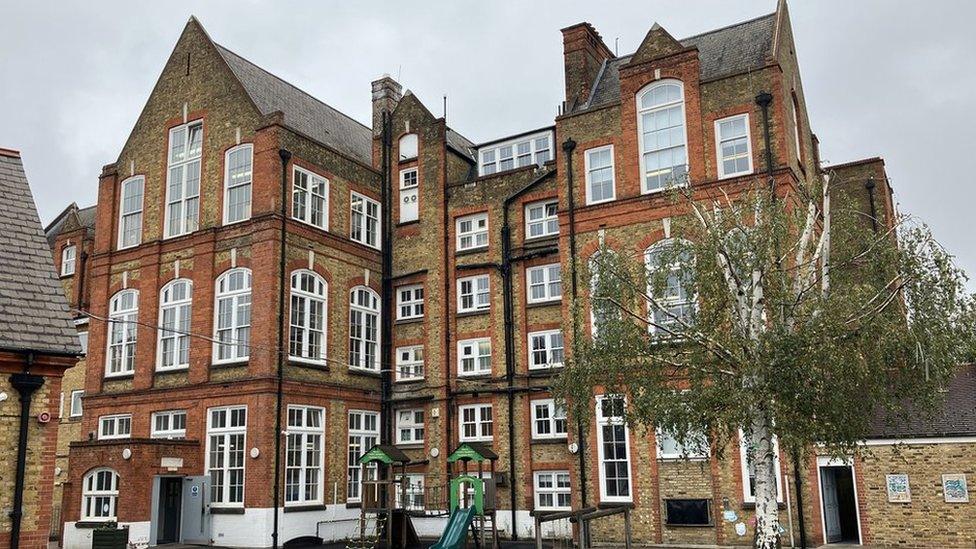
- Published17 January 2024
